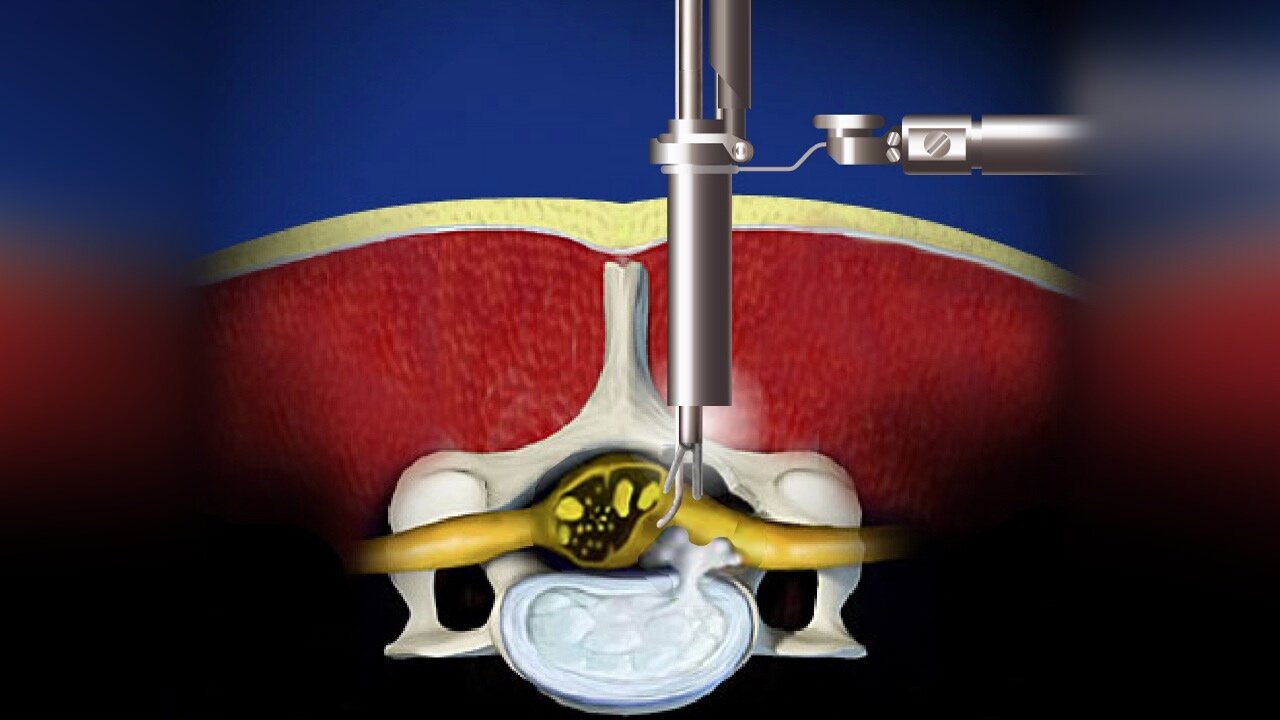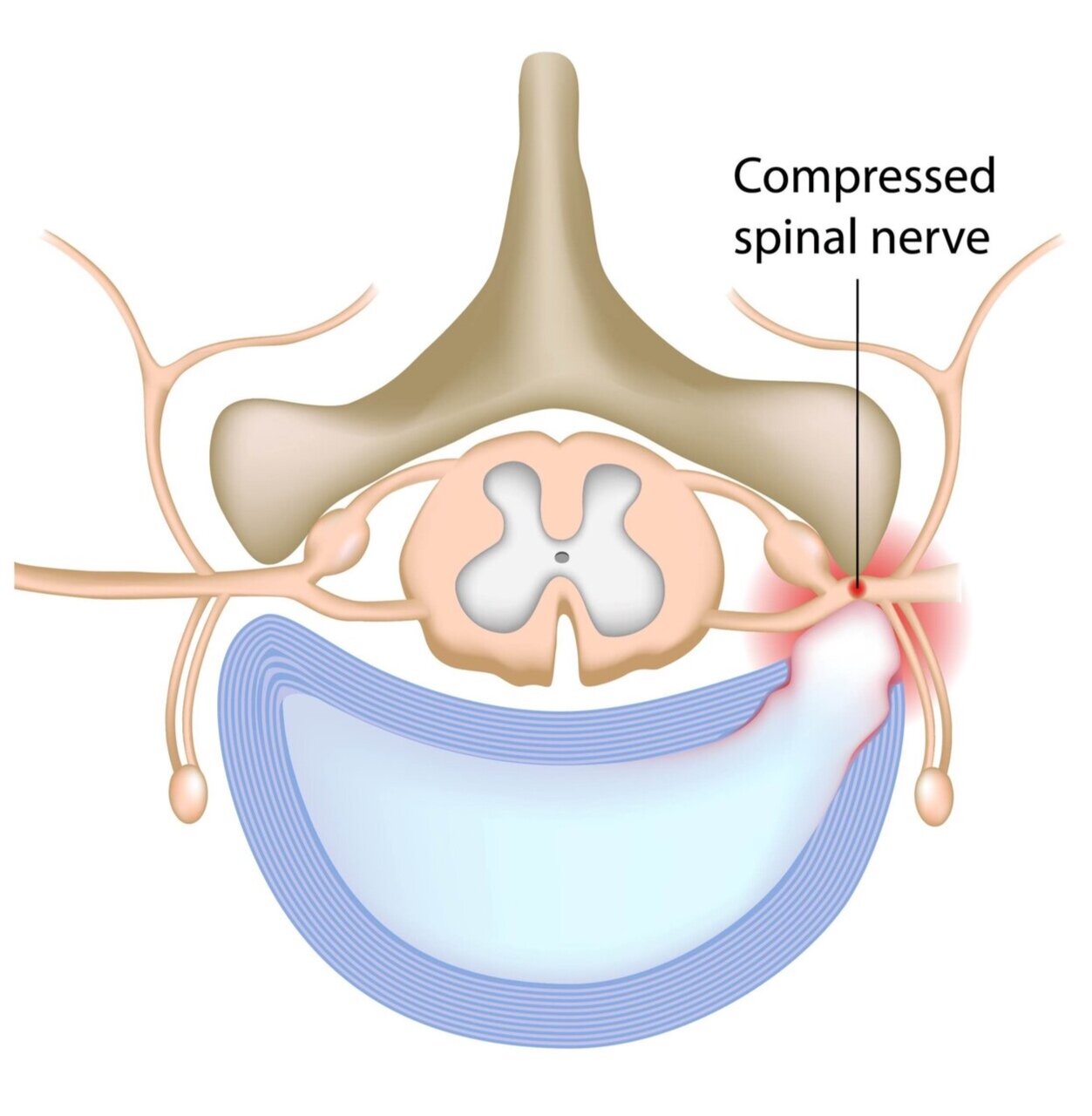
Endoscopic Discectomy
Minimally invasive treatment for Disc Herniation
What is a spinal disc?
It is one of the rubbery cushions (discs) between individual bones (vertebrae) that stack up to make your spine. A spinal disc is a little like a jelly donut, with soft center (nucleus pulposus within a tough exterior (annulus fibrosus).
What is a herniated disc?
A herniated disc occurs when some of the softer "jelly" pushes out through a crack in the tough exterior. A herniated disc can irritate nearby nerves and result in pain, numbness or weakness in back, neck or limbs
What is Endoscopic Discectomy?
Endoscopic Discectomy is a procedure used to remove damaged disc material in the spine. It is a minimally invasive technique that unlike the conventional procedure does not involve major tissue injury. Instead, a small metal tube, the size of a pencil, is inserted into the herniated disc space under x-ray guidance. The tube serves as a passage for the surgical tools and a tiny camera (endoscope). Under the guidance of real-time x-ray image (fluoroscopy) and a magnified live video feed, the fragment of the disc pinching the nerve is removed.
Who should get Endoscopic Discectomy?
You might benefit from discectomy if your presentation includes:
Pain, numbness or weakness in arms or legs
MRI, CT Scan, or discogram reveal disc problems such as disc annular tear, disc bulge, or disc herniation.
Electromyogram (EMG), a nerve diagnostic test demonstrates nerve root compression or irriation
How is this procedure better than a conventional procedure?
Endoscopic discectomy is a minimally invasive procedure with very little blood loss, tissue damage or scar formation. It has a short recovery period with patients usually going home the same day.
What are the risks or potential complications?
Discectomy is generally a safe procedure. But as with any interventional procedure, it carries a small risk of potential complications such as bleeding, infection, leaking spinal fluid and injury to blood vessels or nerves around the spine.
What are the common causes of back pain?
Common causes of back pain include:
Spinal Canal narrowing
What are the common causes of neck pain?
Common causes of neck pain include:
Spinal Canal narrowing




